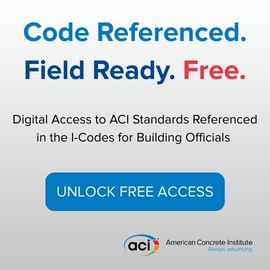
IRCC meeting in Canberra focuses on implementation and administration of building codes
The first meeting of the Inter-Jurisdictional Regulatory Collaboration Committee (IRCC) in 2020 was held on March 16-17 in Canberra, Australia. Due to the novel coronavirus (COVID-19) outbreak, only six countries were represented, but others provided feedback in advance for the topic of the workshop, which was the implementation and administration of building codes. The impetus for the workshop was the findings in Australia’s Building Confidence Report, issued in March 2018, which in many ways are similar to the findings in the Hackitt Report undertaken in England in the wake of the Grenfell fire.
The workshop discussion focused on five themes and was based on input from Austria, Germany, Japan, the Netherlands, Norway, Singapore, the United Kingdom (England & Scotland), and the United States.
Registration and training of building professionals
Countries have a wide range of approaches related to which categories of professionals involved in design and construction require certification and licensing and how that is regulated. Categories explored included developers, architects, draftspersons, builders, site/project managers, building surveyors/inspectors, engineers, fire engineers, fire sprinkler system installers, plumbers, and electricians. No category required certification in every country, and there was a notable difference between countries requiring some demonstration of competency in many of the categories (Germany, Austria, and the U.S.) with the rest regulating few of them. Many countries rely on private sector professional bodies to oversee certification. In addition to being competent, the importance of accountability and ethical behavior among professionals was noted, although formal programs for auditing and tracking this are not present in most countries present.
Performance of government functions by private professionals
While most countries allow for third parties to perform some public functions, such as plan review and inspection, there is a difference in the level of accountability to the government entity and the level of oversight of third party work. Generally, while allowing third-party providers to participate in the system increases efficiency, several countries have experienced quality problems when government functions were outsourced. Further, if a system of checks and balances is not effectively implemented, conflicts of interest and inadequate performance are more likely.
Compliance and enforcement
Most survey respondents have a compliance strategy that is available to the public, and there is a direct correlation between an effective compliance strategy and strong outcomes. The participants were in wide agreement that the best form of compliance includes on-site inspections. Since it is often impractical to require on-site inspections for all construction projects, a risk-based approach is sometimes employed. Such an approach could take into consideration the record and reputation of the builder and the builder’s internal quality control system, the type of building, and government priorities. The discussion also extended to building quality – that is, building above code perhaps to incorporate better performing or more sustainable materials. However, the consensus was that regulators should focus on life safety matters and quality matters above and beyond that should be a function of marketing to buyers.
Collection, storing and sharing of building information
Since most countries collect and store building data at a local level, the challenge of achieving a unified and streamlined method among localities is more pronounced in federal countries with three or more levels of government (federal, state/provincial/territorial, local/county/municipal). Participants recognized the value in sharing information, especially to enhance compliance for practitioners operating in more than one local jurisdiction, but achieving that is sometimes difficult due to legal or regulatory barriers. Countries with a centralized system, such as in Scandinavia, sometimes delegate functions to private sector groups or certified practitioners, with a requirement to provide access to the privately-stored information to authorities upon request. Other countries with a strong central authority, such as Singapore, are able to easily share information across agencies.
Regulating building products
Participants were asked to comment about both non-compliance (i.e., inappropriate or incorrect use of building products) and non-conformance (i.e., building products fail to meet a standard). While most countries find non-compliance to be a larger challenge, much of the discussion centered on non-conformance and the need to have a building certification scheme, with the recognition that an effective certification regulation can help to identify misuse. Many of the challenges noted in the discussion of building product certification were based on experiences with the CE system used in the European Union, which covers approximately 450 building products. Some of these challenges include:
- cost and time necessary to develop standards to test against.
- cost of conducting testing on one or more samples.
- changes in the manufacturing process or materials creating a situation of non-conformance even after approval.
- applicability of tests to real-life scenarios.
- products tested separately may not function the same way when part of a larger system.
- may provide false confidence if only certified for a narrow range of uses.
- designer reliance on marketing rather than technical information when selecting products.







